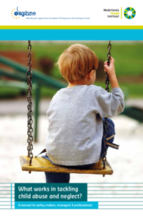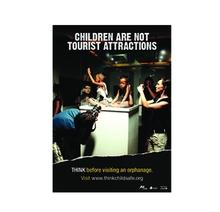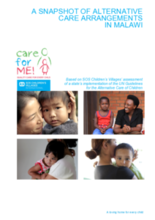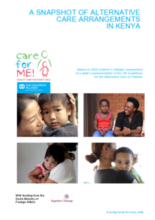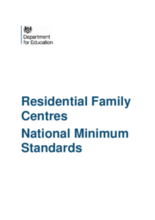Displaying 1231 - 1240 of 1482
FairStart Training is a free 15 step online program developed by a child psychologists in Denmark, in collaboration with a team of childcare professionals, with support from the European Commission. It is a development program that aims to improve the professional care giving skills of those working with young people in public care (focused on children aged 0-3) through daily practices and organizational development.
This study aims to determine the prevalence of maltreatment experienced by institutionalized children prior to their admission to Charitable Children's Institutions (orphanages) in western Kenya, and to describe their socio-demographic characteris
This study aims to determine the prevalence of maltreatment experienced by institutionalized children prior to their admission to Charitable Children's Institutions (orphanages) in western Kenya, and to describe their socio-demographic characteristics, reasons for admission, and the factors associated with prior experiences of maltreatment.
This manual is the main outcome of the European Commission Daphne III programme, Prevent and Combat Child Abuse: What works? Involving regional exchanges and research from five countries (Germany, Hungary, Portugal, Sweden and the Netherlands), this manual brings together knowledge on what works in tackling child abuse. The manual suggests evidence and practice-based prevention and response strategies against child abuse and neglect, including programs and services that have been shown to be successful in strengthening family care.
The article reviews the historical development of out-of-home care in Italy and Spain and compares foster family and residential care, as well as the main research contributions to these topics in both countries.
This report and research conducted by SOS Children’s Villages reviews alternative care arrangements in Tanzania.
The ChildSafe network has produced important information for people who might be traveling abroad and can be confronted by situations where children are in distress or at risk of being abused or harmed, including through the practice of "orphan tourism".
This report from SOS Children’s Villages assesses Malawi’s compliance with, and implementation of, the UN Guidelines on the Alternative Care of Children.
This report presents findings from an assessment of Kenya's implementation of the UN Guidelines for the Alternative Care of Children.
This document contains the UK National Minimum Standards (NMS) applicable to residential family centres.

